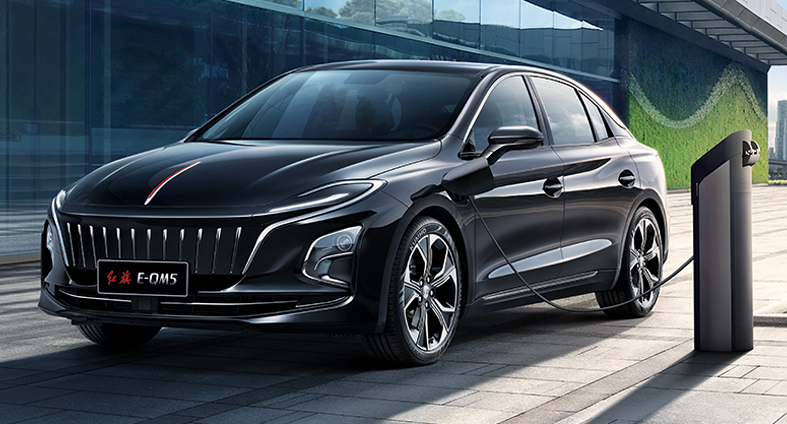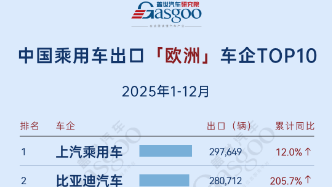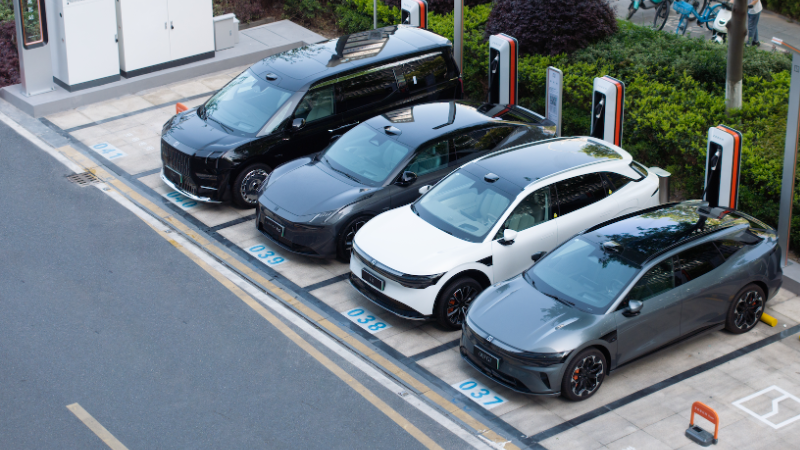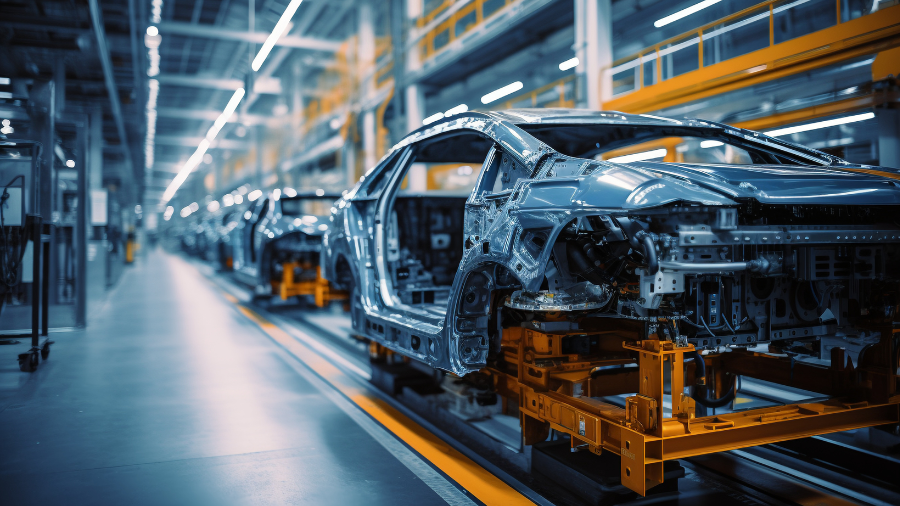China's BYD is known for the production and sales of electric cars and buses, but the company started out as a battery manufacturer. Grasping this supply chain helps BYD reduce car production costs and earn more market share for its self-owned auto brands in China.

BYD's vertically integrated model means that its business supplies must grow in sync with electric vehicle (EV) sales. For the first eleven months of 2021, BYD's NEV segment boasted a 216.97% year-on-year surge with 509,838 vehicles sold, making up 79.5% of the company’s total auto sales.
BYD's vertically integrated model means that its business supplies must grow in sync with electric vehicle (EV) sales. During the first eleven months, BYD saw its installed capacity of power batteries soar 184.4% year on year to 21.34GWh, with its market share rising to 16.6% from 14.7%, according to the data offered by the China Automotive Power Battery Industry Innovation Alliance (CAPBIIA).

BYD is doubling down on batteries to satisfy its fast-growing NEV demands. BYD has to-day built and planned eleven battery manufacturing bases in China, which are located in Shenzhen, Huizhou, Xi'an, Xining, Guiyang, Chongqing, Changsha, Bengbu, Changchun, and Jinan. Those bases involve more than 200GWh of annual battery manufacturing capacity.
Gasgoo hereby summarizes the moves about BYD's power battery capacity expansion occurring this year. Besides, some projects, whose construction didn't start this year, while the works must be underway according to official information sources, are still included in the below content.
At the end of August, BYD entered into a cooperation agreement with the municipal government of Jinan, the capital of Shandong province, to build there a 30GWh power battery manufacturing base. Meanwhile, Jinan Fudi Battery Co.,Ltd. was founded on Aug. 24 as the wholly-owned subsidiary of Fudi Industry Co.,Ltd.
According to a document unveiled by the Jinan Natural Resources Planning Bureau in mid-October, Jinan Fudi Battery Co.,Ltd is the entity who is responsible for the construction of BYD's Jinan battery base.
On July 14, BYD struck a pact with Changchun municipal government and FAW Group to co-invest in a NEV power battery production project. The concrete designed capacity still remains unknown.
A local report said in May that BYD's Fudi Battery planned to plow nearly 10 billion yuan ($1.57 billion) in constructing a battery manufacturing plant in Changchun. The base may be built to offer batteries to FAW Group, who is headquartered in the capital of Jilin province.

Hongqi E-QM5; photo credit: FAW Hongqi
It is worth noting that FAW Hongqi's E-QM5 all-electric sedan, which went on sale in June this year, is armed with BYD's Blade Battery.
On January 18, BYD broke ground on a factory for NEV power batteries with an annual production capacity of 20GWh in Bengbu city, Anhui province, about a month after signing an agreement for this project with local government. The total investment for the facility is expected to amount to 6 billion yuan, about $940.81 million. More detailed information on the schedule is not yet available.
BYD located its first Blade Battery manufacturing factory in Bishan District, Chongqing city. This factory began production in March 2020 and had featured a production capacity of 20GWh, Qin Wenmin, the mayor of Bishan District, said in mid-December last year.
Mr. Qin revealed then a new 15GWh Blade Battery manufacturing line would be built in the future to raise the Bishan factory's capacity to 35GWh. However, further details about the new line construction have not been disclosed yet.
In Ningxiang, a county-level city under the administration of Changsha city, BYD's second Blade Battery factory has been built there with a total designed capacity of 20GWh. The first phase of 10GWh had gone into operation before March 15 this year.

BYD Blade Battery; photo credit: BYD
Besides, BYD also launched a 10GWh Blade Battery manufacturing project in Guiyang, capital of Guizhou province. According to the information revealed by Guiyang municipal government in mid-August, the factory was still under construction then.
The construction of BYD's Xi’an battery base started in 2018, and the first phase of 10GWh ternary-lithium batteries was put into production in 2019. The second phase is still under construction, according to an official reply given in Nov. 2020, and is said to be built for Blade Battery production as well.
Apart from the on-going construction of battery production factories, BYD set up four “Fudi Battery” subsidiaries in Shaoxing, Jinan, Yancheng, and Wuwei during the first eleven months of 2021. Each of them involves a registered capital of 50 million yuan ($7.84 million) and is wholly controlled by Fudi Industry Co.,Ltd. Except the aforesaid Jinan project, those moves are regarded by industry insiders as part of preparations to deploy new battery capacity in the other three cities.
As for overseas markets, it seems that BYD expects to be a neighbor of its foreign automaker clients. According to the company's job posting ad seen by a local media outlet in March, Fudi Battery prepared to build its first overseas battery manufacturing factory in Europe. The factory is set to work on the production, packing, storage and transport of lithium ion batteries.
On the other hand, the company intends to spin off its battery unit, Fudi Battery, for a public listing in the next one or two years as BYD is looking to sell more of its proprietary batteries to other automakers. Thus, expanding battery capacity is also a necessary answer to Fudi Battery’s future IPO.








![[Gasgoo Briefs] Auto Industry Price Behavior Compliance Guide Released; Wingtech Comments on Nexperia Case Ruling](https://gascloud.gasgoo.com/production/2026/02/2c12fa82-f27c-4aa3-a2d5-de96589089a3-1771080406.png)
